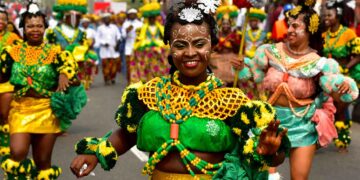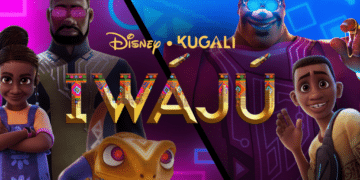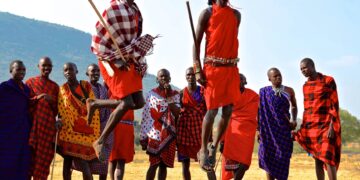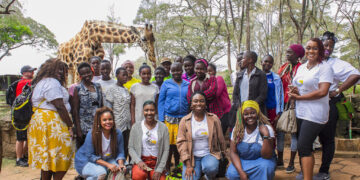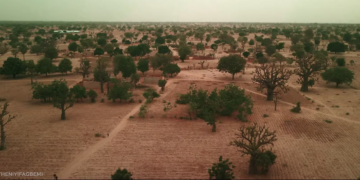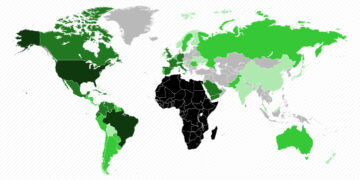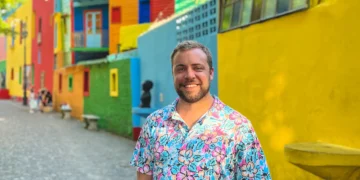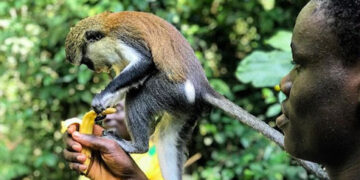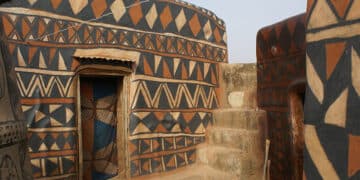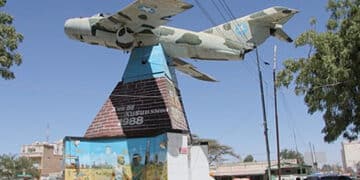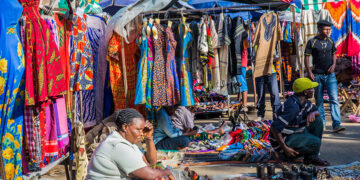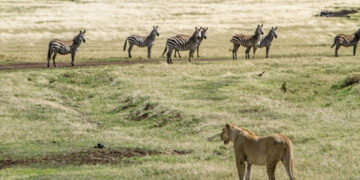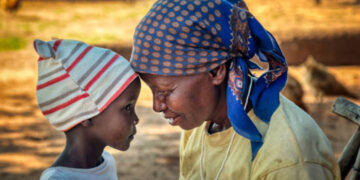When we leave our homeland, not everything we carry with us is physical. Along with priceless memories, we carry our heritage, hoping to pass it on future generations. But how can we achieve this in our host country? The Culture Tube asked some Africans in the Diaspora what they do to keep their African heritage alive and we got some interesting responses.

Haddy Jallow Coulibaly
SVP, Operations, BigCart Holdings | Founder/CEO, Elev8 Foundation, Inc.
Haddy manages business operations and business enablement across the globe. She is also the Founder and CEO of Elev8 Foundation, Inc., a non-profit organization that helps to provide educational, health, and financial resources to children and related benefits to mothers in underserved communities in the US and abroad (currently running active projects in The Gambia).
As a community advocate, Haddy served for five years as the first female President of the Atlanta-Gambia Emergency Relief Association (AGERA), the most influential Gambian social organization in the Diaspora. She’s currently an active member of The African Women PAC and OneVoice Africa.
How do you preserve your African heritage in your host country and community?
Through my community networks, constant interaction with family and friends in the US and The Gambia, mentoring the youth, and making sure my children learn and are comfortable with our culture.
I may be an American born Gambian but my network includes folks from all over the continent that I interact with and learn from every day. Being an African immigrant may have brought us together, but our fellowship helps us maintain our cultural heritage.
What do you miss most about the continent and your country of origin?
The tasty/organic/unique foods and sense of community: The saying “It takes a village” is not just a statement in The Gambia, it’s a culture.
What more can the immigrant community do to educate the host community about African culture?
Organize more cultural events to create awareness, especially for the younger generation.
Your tribe’s language?
There are two: Fulani & Wolof.
What is your favourite African meal?
Soupa Kanja (okra soup)

Edafe Sodje
Chairman, Nigerian-American Public Affairs Committee, Georgia Chapter and Executive member, Georgia African Community Coalition via the One Voice Africa umbrella.
How do you preserve your African Heritage in your host country and community?
Education is essential—both tangible and intangible.
Maintain culture by sharing tradition with the community.
Reading Literature and visiting local centers set up by the community.
What do you miss most about the continent and your country of origin?
Food, hospitality and culture
What more can the immigrant community do to educate the host community about African culture.
Host workshops.
Education—teach in schools.
Invite the local community to meetings.
Your tribe’s language?
Urhobo.
Your favorite African meal?
Pounded Yam with any Nigerian soup.

Dr. Clarice Ford-Kulah
College Professor and CEO of Providence Preservation Foundation, an organization dedicated to preserving the history and culture of Liberia and Africa at large.
Dr. Ford Kulah was born in Liberia, West Africa, but raised in the United States of America.
How do you preserve your African heritage in your host country and community?
I preserve my African heritage in my host country by ensuring that my children are exposed to my culture through our church, community activities, our food, our dance, etc.
We attend a church that is primarily African and events that are cultural in nature. I ensure I cook our foods at least a few times a week. My goal is to develop a future group of younger Africans that not only understand our culture, but can also pass it on to the next generation.
What do you miss most about the continent and your country of origin?
I miss everything about my continent and country of origin. However, if I had to choose, I would say its people, the breathtaking sunsets, the amazing beaches, and most importantly, my family.
What more can the immigrant community do to educate the host community about African culture.
I believe that we as African immigrants can host cultural fairs, Taste of Africa events, show films, literature, storytelling, etc. in an attempt to educate our host community about African culture. We can do African music and dance conferences, cultural nights, African Fashion Nights, and the like that will encourage total immersion into African culture. Once people understand completely, it is much easier to allow yourself to be educated.
Your tribe’s language?
Because Liberia was founded by African-Americans and the American Colonization Society in the 1800’s, our national language is broken English. Thus, I speak that broken Liberian English.
Your favorite African meal?
Split Peas and Gravy! It’s a delicious meal of Liberia that is usually served on Sunday or on special occasions.

Dede Ntumba
President of the Congolese Community of Atlanta COCOMATL.ORG
Dede is from the Luba tribe of the Democratic Republic of Congo where he studied political science and international relations at the university in Lubumbashi.
After he arrived in the USA, he studied at the New York Technical college, where he obtained a diploma as a medical assistant.
He worked in the medical field for many years, before establishing his transport business.
How do you preserve your African heritage in your host country and community?
Preserving my heritage involves participation in my community’s social events —like funerals and weddings—and keeping our language food habits alive.
What do you miss most about the continent and your country of origin?
The scents, flavors, social life.
What more can the immigrant community do to educate the host community about African culture.
Get involved in social events, exchange reading materials, and organize cultural activities.
Favorite African meal?
Fufu and burned cow and goat.

Nathaniel Sena Amenyo aka Alinco
IT professional with a specific focus in Data modeling; founder & CEO of 105Xchange Radio.
Sena was born and raised in Ghana, and is from the Ewe tribe in the Volta Region of Ghana West Africa. After obtaining his bachelor’s degree from the Central University College in 2006, he migrated to the USA.
As the creator and founder of The Progressive Minds Show, he has successfully interviewed great and important dignitaries like the Secretary of State Jesse White, Clerk Of Cook County Court Dorothy Brown, Judges Shapiro, Robyn D. Shoffner, Dr. Willie Wilson, Juliana Stratton, deputy Illinois governor, The Abolition Institute, community activists and many more.
He has been and still continues to be actively involved in several community-centric programmes and initiatives aimed at fostering peace, unity and love, like The Exchange Foundation and The African Diaspora Summit Series (TADSS).
How do you preserve your African heritage in your host country and community?
By wearing African apparel and promoting elements of the culture via social media.
What do you miss most about the continent and your country of origin?
The hospitality of the people, the air and food.
What more can the immigrant community do to educate the host community about African culture.
Engage in African-Americans’ community events and introduce the culture to them. Extend a hand of love and appreciation and express the need for collaborations.
Favorite African meal?
Banku and okro soup with fish.

Bior Bropleh
Online marketing, Strategy and Sales
Bior Bropleh is of the great Kru tribe, in Monrovia, Liberia. He has over a decade of experience in business strategy and digital marketing and innovation. In addition to leading the Liberian community in Georgia, he also serves on several nonprofit boards including: chairman of the Board of Advisors for AIESEC at the University of Georgia, and Chair of the AIESEC Life chapter in Georgia. He has also recently been asked to serve on the national Board of Directors of AIESEC Life (www.aieseclife.org).
How do you preserve your African Heritage in your host country and community?
I believe that the key to preservation is to be intentional about infusing aspects of our culture in everything that we do on a daily basis. And working hard to create awareness about elements of our culture that can benefit others like cuisine, music, dance, art, and spirituality. Young people are crucial in this process, because if there is buy-in from the youth, they can carry the torch into the future. Many young people tend to want to “fit in” and so may not want to promote their African traditions. So, getting them on board will significantly increase our chances of success in preserving our culture.
What do you miss most about the continent and your country of origin?
I miss the sheer willpower of Africans to survive and prosper despite the many challenges faced on a daily basis.
I have traveled to over 10 African countries, and I have sensed this mindset wherever I went. I dearly miss the vegetation in Liberia…it is always so green! Looking up at the clear skies at night and being able to see so many stars due to a lack of industrial pollution will never get old.
What more can the immigrant community do to educate the host community about African culture.
I believe one of the most effective ways, is to inculcate elements of our culture in our daily activities. For instance, if you have a potluck at work, take your traditional meals. Throw on an African piece every now and then to showcase our remarkable attires. When you host African events, invite folks from other communities to come and learn about ours. Finally, introduce your culture to your kids at an early age; they will thank you later. My organization (Liberian Association of Metropolitan Atlanta) has plans to do a lecture series on Liberian culture and we believe this will help to educate others about our culture. Our communities can always do better in learning more about each other as well, so I make it a priority to invite other African friends to Liberian cultural events, and I make an effort to attend those of other countries.
Your tribe’s language?
Kru.
Your favorite African meal?
I love all Liberian meals but if I had to pick one I’d have to go with Palmbutter sauce with fufu.



